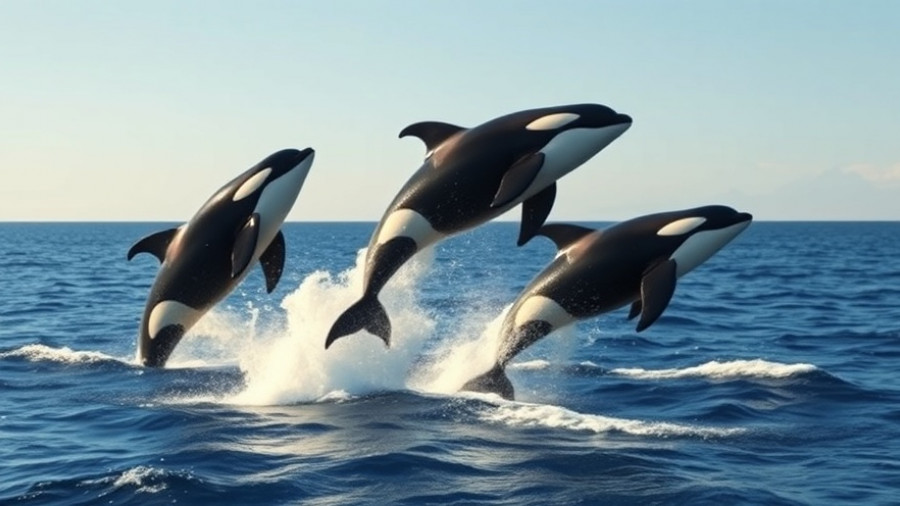
The Unfolding Drama of Orcas and Great White Sharks
In the stunning waters of Mexico’s Gulf of California, a captivating tale of predator and prey has emerged. Pods of orcas, known as killer whales, have been observed masterfully hunting juvenile great white sharks. This remarkable behavior not only showcases the incredible hunting prowess of these marine mammals but also sheds light on a significant ecological shift occurring in the region.
Master Hunters: The Technique of Moctezuma’s Pod
The group of orcas leading the charge is referred to as Moctezuma’s Pod. Renowned for their diverse diet that primarily consists of sharks and rays, these orcas have developed an intelligent hunting strategy that has drawn the attention of marine biologists. They have been documented efficiently targeting young great white sharks, particularly at the Baja California coast during specific seasons.
The hunting process is nothing short of a well-orchestrated ballet of aggression and strategy. When an orca spots a juvenile shark, it will chase it down before executing a skillful flip, which induces a phenomenon known as tonic immobility—a temporary paralysis that leaves the shark defenseless. This technique allows the orca to easily access the fatty, nutrient-rich liver, which they then share among the pod. The sharks are left floating, often igniting a series of transformations within the ocean ecosystem.
Ecological Impact: Community and Culture Among Orcas
According to Erick Higuera Rivas, a leading marine biologist, the recurring pattern of hunting juvenile sharks indicates a possible seasonal preference among orcas. This new predation behavior places additional pressure on the local great white population, which could lead to broader implications in the food web. Similar hunting practices have been noted in locations like South Africa and Australia, where orcas prey upon adult great whites; however, the Mexican pod seems to favor the more vulnerable juvenile sharks, further emphasizing their adaptability.
Much like human cultures, the techniques and strategies developed by orcas are often refined and passed down through generations. Alison Towner, a marine biologist, highlights the uniqueness of these cultural traits, suggesting that once such strategies are learned, they influence the group's future interactions with prey—revealing the complex social structures within orca pods.
The Ripple Effect: Broader Implications for Marine Ecosystems
The impact of Moctezuma’s Pod's hunting strategies cannot be understated. As apex predators exert their influence over local shark populations, other marine species may be affected. For instance, in South African waters, the presence of orca attacks on great whites led to notable shifts in local biodiversity, as other species flourished in the absence of their dominant predator. If current patterns continue, similar ecological transformations could unfold in the Gulf of California, prompting researchers to keep a vigilant eye on these marine dynamics.
Connecting with Nature: What This Means for Boaters and Beachgoers
For beachgoers and boaters in the region, this phenomenon offers a unique opportunity to witness the wonders of nature in action. Understanding the behaviors and migration patterns of both orcas and great white sharks can enhance the experience of those who frequent these waters. It's a reminder of the intricate web of life that exists beneath the surface—a call to respect and protect these vital ecosystems.
Conclusion: The Dance of Life Underwater
The emergence of the orcas’ hunting behaviors in the Gulf of California is not just a scientific curiosity but a narrative of survival, adaptation, and the continuous balance of marine life. Residents and visitors alike are encouraged to appreciate these natural wonders, fostering a deeper connection between humans and the ocean’s mysteries. Stay informed about marine wildlife, as understanding these creatures enhances our admiration for the oceanic world around us. Dive in, explore, and be part of this remarkable journey!
 Add Row
Add Row  Add
Add 




Write A Comment